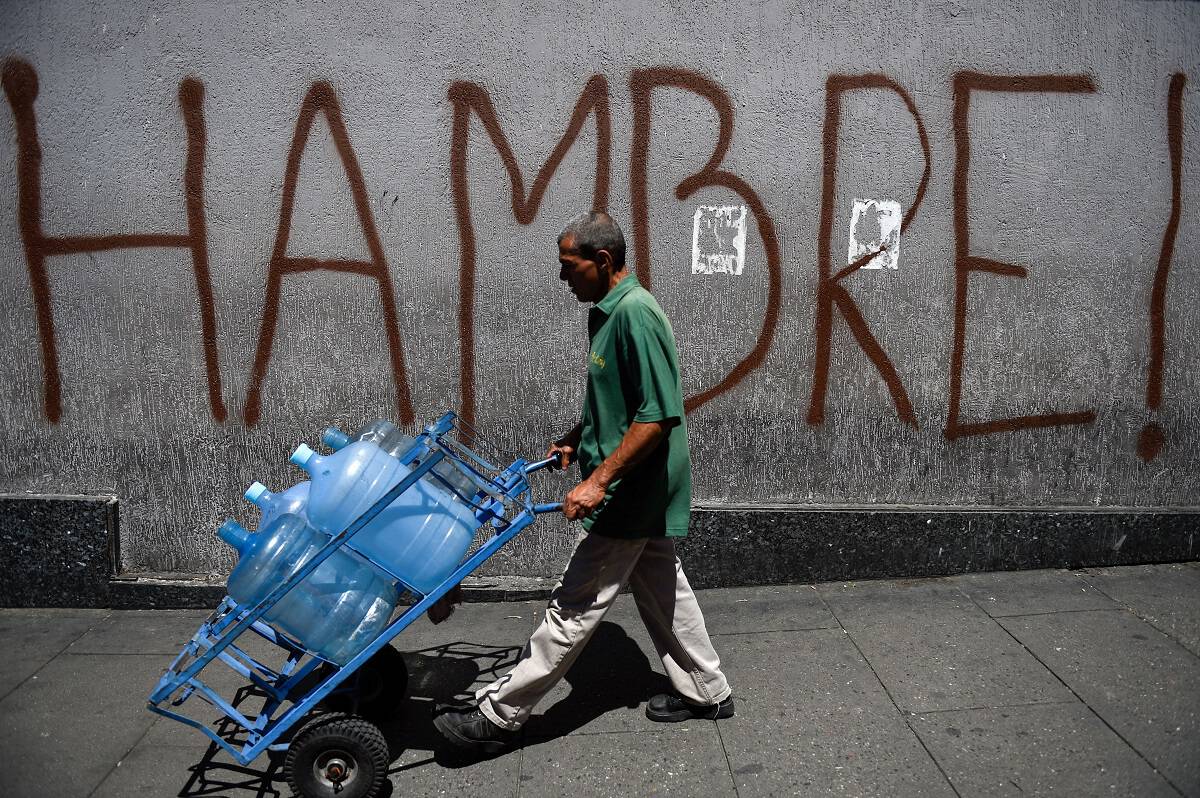About 24 percent of Venezuela’s population – seven million people – are in dire need of humanitarian aid, according to an internal UN report that showed malnutrition and disease were on the rise as living conditions plummet.
The report obtained by AFP on Thursday was presented this week to President Nicolás Maduro’s government, which has blamed US sanctions for Venezuela’s economic crisis, and to opposition leader Juan Guaidó.
The “Overview of Priority Humanitarian Needs” lays out detailed data about the scale of the humanitarian crisis that is rocking Venezuela as the United Nations seeks to enlist support to step up its response.
“Seven million people – or about 24 percent of the total population currently living in the country – are estimated to have urgent priority needs for assistance and protection,” said the 45-page report.
More than 94 percent of the population lived in poverty in 2018, including 60 percent who lived in extreme poverty, according to a survey by three universities in Caracas quoted in the report.
One of the greatest impacts of the crisis has been on nutrition, with consumption of meat and vegetables dropping between 2014 and 2017. Consumption of milk, in particular, dropped by 77 percent.
Some 3.7 million people suffer from undernourishment in the country – three times the rate from the 2010-2012 period, according to UN estimates.
At least 22 percent of children under five suffer from chronic malnutrition.
Preventable diseases such as tuberculosis, diphtheria, measles and malaria have resurfaced and are on the rise as is hepatitis A due to the lack of access to safe drinking water.
Unprecedented challenges
“Due to an increasingly contracted economy and political unrest, the Venezuelan population is facing unprecedented challenges in accessing essential services, including protection, health care, medicines, vaccinations, water, electricity, education and access to food,” said the report.
Average wages have collapsed, and the outflow of people including professionals and technicians from all sectors have exacerbated the drop in living conditions.
About 5,000 people leave the country every day, with some 10 percent of the population – more than 3.4 million people – now living as migrants or refugees in neighboring countries, it said.
About one third of the country’s doctors – 22,000 – have migrated out of Venezuela.
Some 300,000 people are at risk because they have been unable to access medicines or treatment for more than a year including Venezuelans on dialysis, afflicted by Parkinson’s disease or living with HIV.
Venezuelan diplomat in Costa Rica accuses Guaidó-appointed ambassador of usurping embassy
A study by UNICEF found that 48 percent of children and teenagers enrolled in schools were at risk of dropping out because they are unable to attend classes regularly.
The United Nations moved to scale up relief efforts in Venezuela late last year, launching a strategy to reach 3.6 million people, but the report indicated that effort was falling short.
“The limited scope and funding of the scale-up strategy, as well as continuing changes in the situation, including the impact of power outages in March 2019, have made clear that much more action is required to meet the growing needs of the Venezuelan people,” it said.
Last month, deadly clashes broke out at Venezuela’s border with Colombia and Brazil over opposition demands to let in humanitarian aid.
“The politicization of humanitarian assistance in the context of the crisis makes delivery of assistance in accordance with the principles of neutrality, impartiality and independence more difficult,” said the report.
Crowds cheer Guaidó as opposition leader returns to Venezuela






